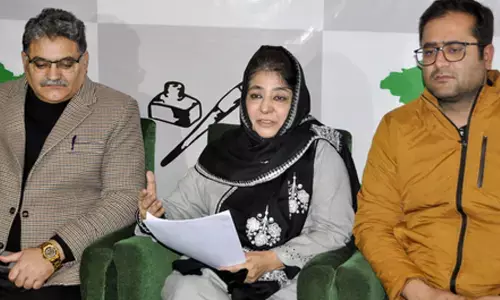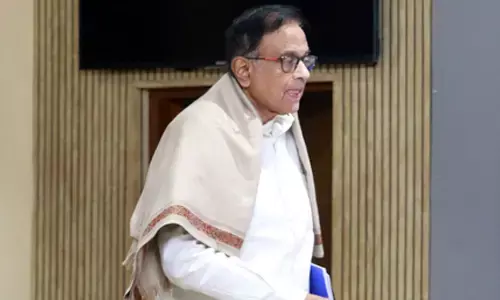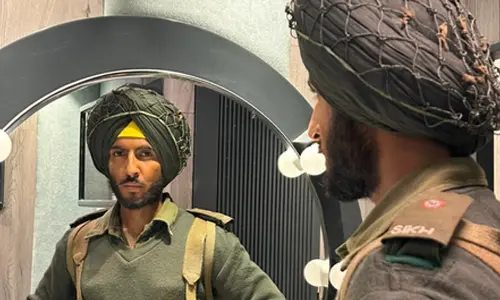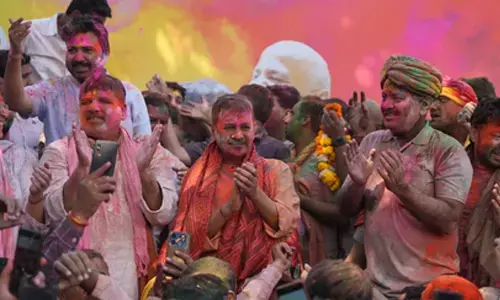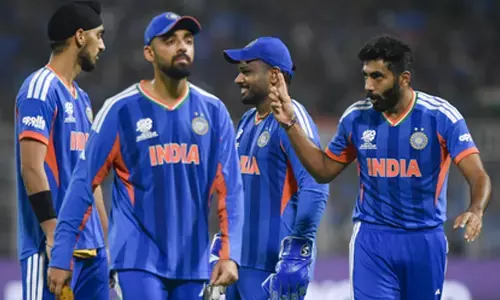State Public Service Commission

Parallel to the Union Public Service Commission (UPSC) in the centre, there is a State Public Service Commission (SPSC) in a state. As UPSC Article 315 to 323 in part XIV of the Indian Constitution is applied to the SPSC too; which deals with composition, appointment and removal of members’ powers, functions and independence of SPSC.
Parallel to the Union Public Service Commission (UPSC) in the centre, there is a State Public Service Commission (SPSC) in a state. As UPSC Article 315 to 323 in part XIV of the Indian Constitution is applied to the SPSC too; which deals with composition, appointment and removal of members’ powers, functions and independence of SPSC.
Composition
- SPSC consists of a Chairman and other members appointed by the Governor of the state.
- Strength of the commission is left to the discretion of the Governor.
- The Constitution does not prescribe qualifications for appointments in the commission but mandates that one half of the members of the commission be such persons who have held office at least for ten years either under the Government of India or the government of state.
- Service of the Chairman and the members of the SPSC are decided by the Governor.
- Either the Chairman or the members of the SPSC hold office for six years or until they attain the age of 62, whichever is earlier.
- The members can resign office whenever they want by addressing a resignation letter to the Governor.
- If the Chairman of the SPSC resigns or is removed before his term then the Governor can appoint an acting Chairman from among the members of commission.
Removal
- The Governor has the right to appoint the Chairman and members of the SPSC but does not hold an authority to remove them.
- Only the President of India holds the authority to remove the Chairman and the members from the SPSC.
- The President can remove the Chairman and the members in the same manner as the UPSC council, i.e.
- If he is adjudged an insolvent i.e. if he has gone bankrupt.
- If he engages, during his term of office, in any paid employment outside the duties of his office.
- If he is, in the opinion of the President, unfit to hold the office by reason of infirmity of mind and body.
- Apart from these conditions, the President can also remove the Chairman and members of the SPSC on grounds of misbehaviour. But in such a scenario, the President has to consult the Supreme Court for an enquiry.
- If the Supreme Court after an enquiry upholds the causes of removal and advises so; the President can remove the Chairman or the member.
- Under the provisions of the constitution, the advice of the Supreme Court is binding on the President.
- In the process of an enquiry, the Governor can suspend the Chairman or the member of the committee.
Functions
- It shall be the duty of the State Public Service Commissions to conduct examinations for appointments to the services of the State respectively.
- The State Public Service Commission, as the case may be, shall be consulted-
- on all matters relating to methods of recruitment to civil services and for civil posts;
- on the principles to be followed in making appointments to civil services and posts and in making promotions and transfers from one service to another and on the suitability of candidates for such appointments, promotions or transfers;
- on all disciplinary matters affecting a person serving under the Government of India or the government of a state in a civil capacity, including memorials or petitions relating to such matters;
- on any claim by or in respect of a person who is serving or has served under the Government of India or the Government of a State or under the Crown in India or under the Government of an Indian State, in a civil capacity, that any costs incurred by him in defending legal proceedings instituted against him in respect of acts done or purporting to be done in the execution of his duty should be paid out of the Consolidated Fund of India, or, as the case may be, out of the Consolidated Fund of the State;
- on any claim for the award of a pension in respect of injuries sustained by a person while serving under the Government of India or the Government of a State or under the Crown in India or under the Government of an Indian State, in a civil capacity, and any question as to the amount of any such award,and it shall be the duty of a Public Service Commission to advise on any matter so referred to them and on any other matter which the President, or, as the case may be, the Governor of the State, may refer to them:
- Provided that the President as respects the all-India services and also as respects other services and posts in connection with the affairs of the Union, and the Governor, as respects other services and posts in connection with the affairs of a State, may make regulations specifying the matters in which either generally, or in any particular class of case or in any particular circumstances, it shall not be necessary for a Public Service Commission to be consulted.
- All regulations made under certain clauses by the President or the Governor of a state shall be laid for not less than fourteen days before each House of Parliament or the House or each House of the Legislature of the State, as the case may be, as soon as possible after they are made, and shall be subject to such modifications, whether by way of repeal or amendment, as both Houses of Parliament or the House or both Houses of the Legislature of the State may make during the session in which they are laid.
The independence and limitations of the SPSC is similar to that of the UPSC.


